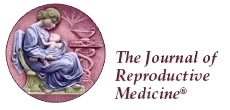Welcome to Midwest Fertility Center & Fertility Clinic
Amos E. Madanes, MD
A trusted provider of IVF and fertility services in Chicagoland and NW Indiana
Outstanding care & groundbreaking fertility expertise.
Take control of your fertility and create the family you want with professional, clear answers and options from Dr. Amos E. Madanes.

I would like to be pregnant

I Need Care for a Fertility-Related Condition

I'd like to understand my fertility

About Amos E. Madanes, MD
Fertility Treatments
We Offer Personalized Fertility Treatments For All Your Needs and Conditions.
What our patients are saying
Does it really work? Will it work for me?
WHY CHOOSE US?
Sophisticated Fertility Care.
Welcome to Midwest Fertility Center, recognized as one of the Midwest’s leading institutions for reproductive assistance. Midwest Fertility Center was established in 1984 to meet the needs of couples experiencing infertility. Our fertility practice is now one of the leading providers of reproductive health care.
As a pioneer in the field of reproductive endocrinology, we have adapted the latest technologies to successfully treat patients from across the nation. Midwest Fertility Center offers a number of treatments including In-Vitro Fertilization (IVF), artificial insemination and donor insemination, as well as surgical procedures like tubal ligation reversal.
Through innovative research, highly-trained medical personnel and specialized psychological support, our IVF specialists assist couples in building a family using a variety of advanced reproductive care techniques. Furthermore, we possess state-of-the-art lab equipment classified as “elite standard”. Our physicians, embryologists, physician assistants, nurse practitioners, fertility nurses, IVF specialists, ultrasonographers, and psychologists are selected using very strict criteria to meet our standard of excellence.
Midwest Fertility Center has offices throughout Chicago and Northwest Indiana. We aim to be as conveniently located as possible in order to serve IVF and fertility patients from a plethora of communities. We invite you to meet Midwest Fertility Center’s welcoming staff of fertility and IVF specialists, as well as learn more about our many services designed to give you the best possible chances of having a child.
Our Clinics
Your Future Family Depends on Working With The Best
The first ever pregnancy in the United States to result from a non-surgical intra-tubal insemination procedure was achieved by Dr. Amos E. Madanes in December 1989. The incredible results of his technique has been brining new hope to couples for the last three and a half decades.
Dr. Amos E. Madanes has developed several revolutionary assisted-reproduction procedures and has come to be known as an innovator and leader.
Current Specials

Basic IVF Package Only $7,200*
Midwest Fertility Center is the leading provider of IVF treatment with successful outcomes. Call now to schedule your consultation with Board Certified Reproductive Endocrinologist Dr. Amos E. Madanes, and meet our patient-focused team.*
Limited time offer
* Facility fees, medications and micromanipulations are additional. This coupon price is not applicable to individuals with insurance coverage. Please contact our office at 800-244-0212 for more information.
Tubal Ligation Reversal $4,500 with Guarantee!*
Midwest Fertility Center is one of the only full-service fertility centers performing Laparoscopic Tubal Ligation Reversal. We guarantee our work and will give you $1,500 refund or a $2,000 credit toward an IVF cycle, if the surgery is attempted but neither tube can be repaired, OR, when both tubes can be repaired but both were reoccluded within 3 months after the procedure.
Call us now at 800-244-0212 to schedule your tubal reversal consultation and take advantage of our unique, guarantee offer.*
* Facility and anesthesia fees are additional. Pre-qualification requirements for guarantee redemption apply. This price listed is for procedure only, please contact our intake coordinator for more information at 800-244-0212. Let me know if you need any links or have any questions.

Our Locations
Accepted Insurance Options & Plans












From The Blog
10 Important Things to Know Before Starting the Surrogacy Process
Surrogacy can be a beautiful journey to parenthood, offering hope to individuals and couples who...
What Are the Chances of Having Twins with IVF?
In recent years, in vitro fertilization (IVF) has offered hope https://mfcfamily.com/ to millions of people...
HSG vs. Sono HSG- What’s the Difference?
At Midwest Fertility Center https://mfcfamily.com/, we believe that informed patients are empowered patients. If you’re...











